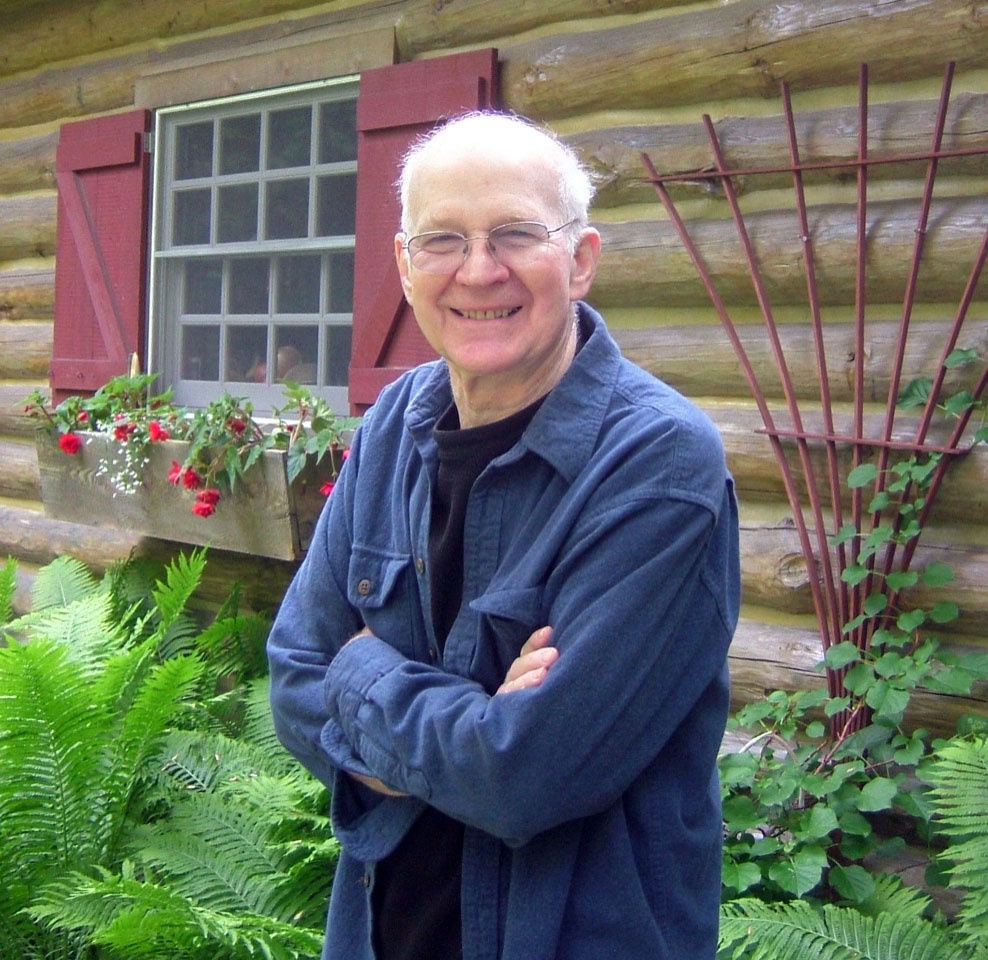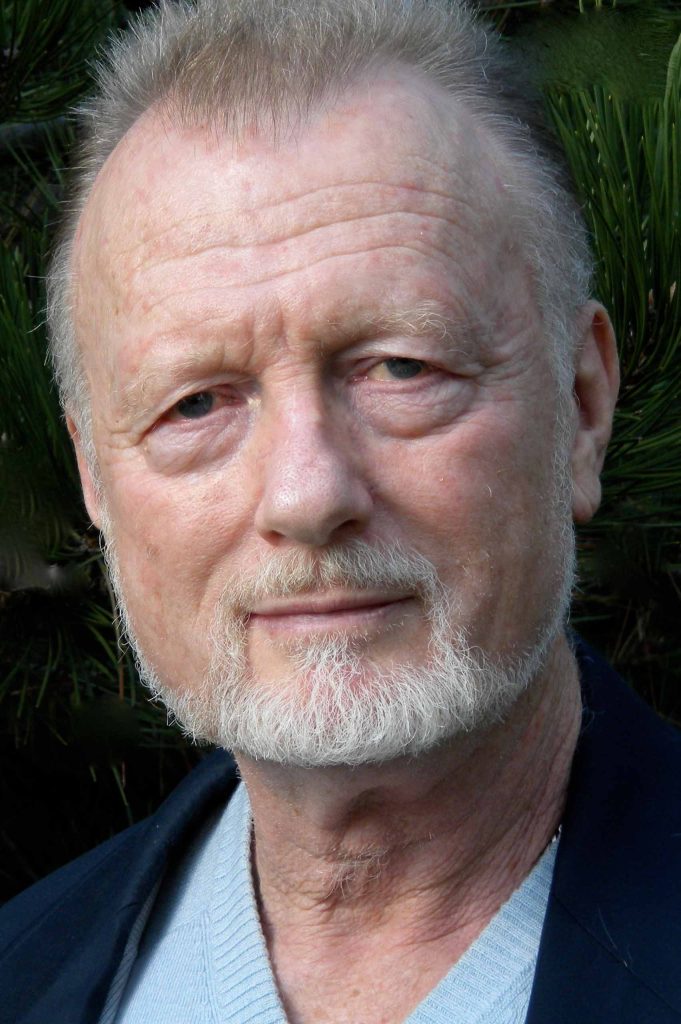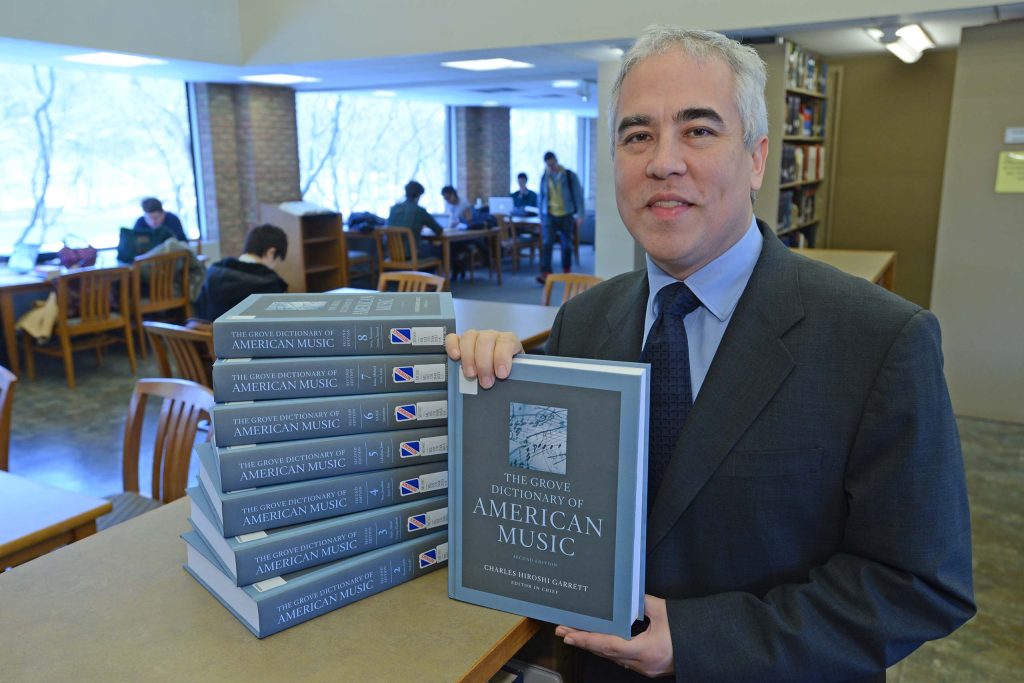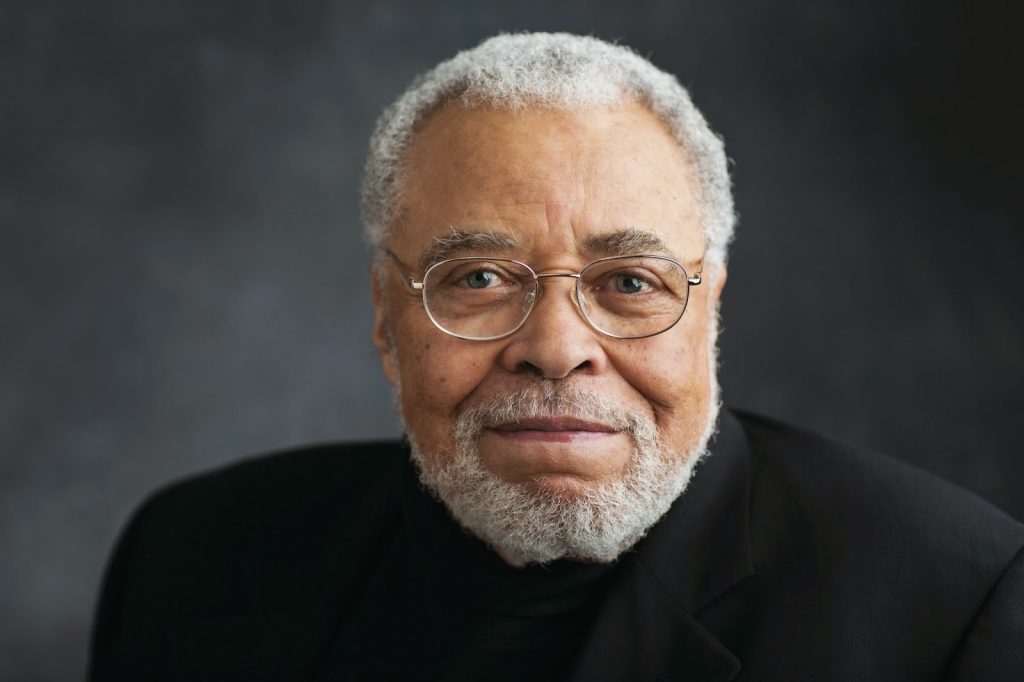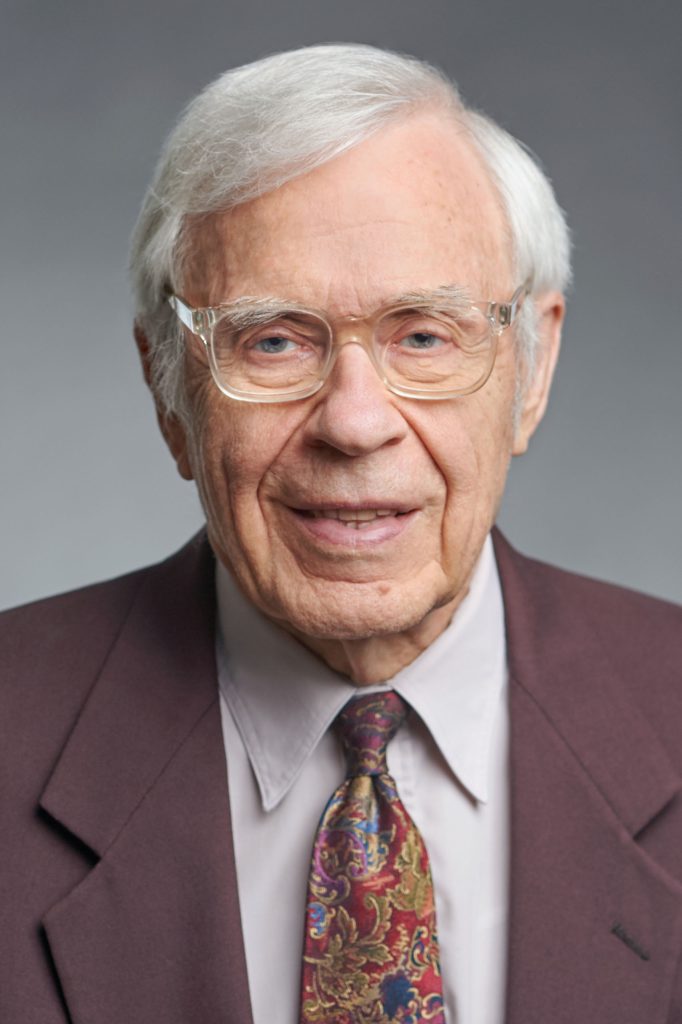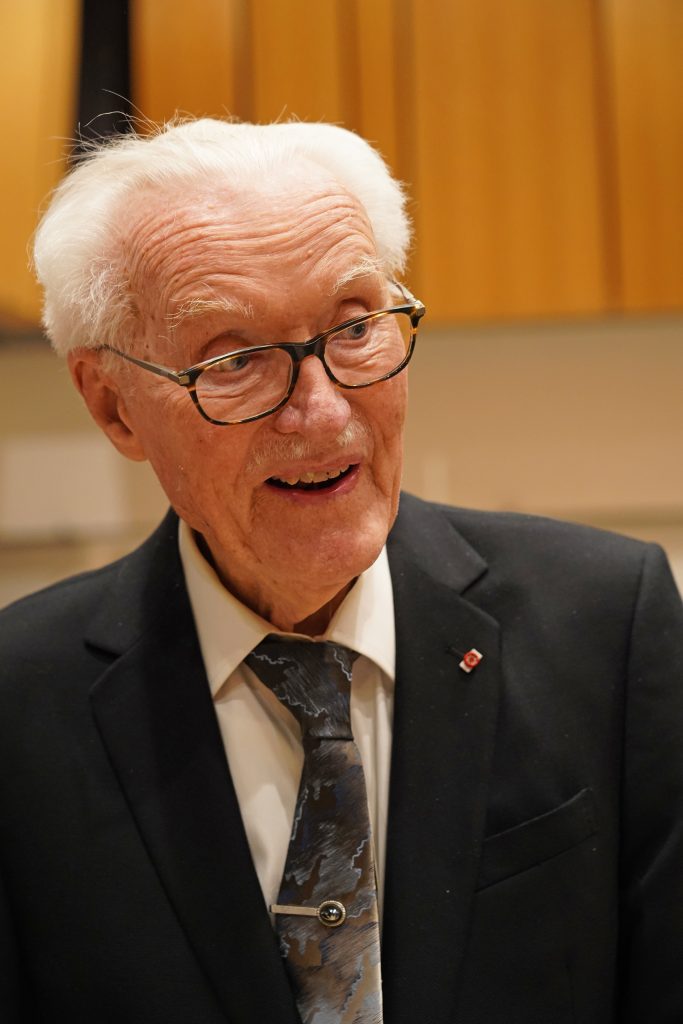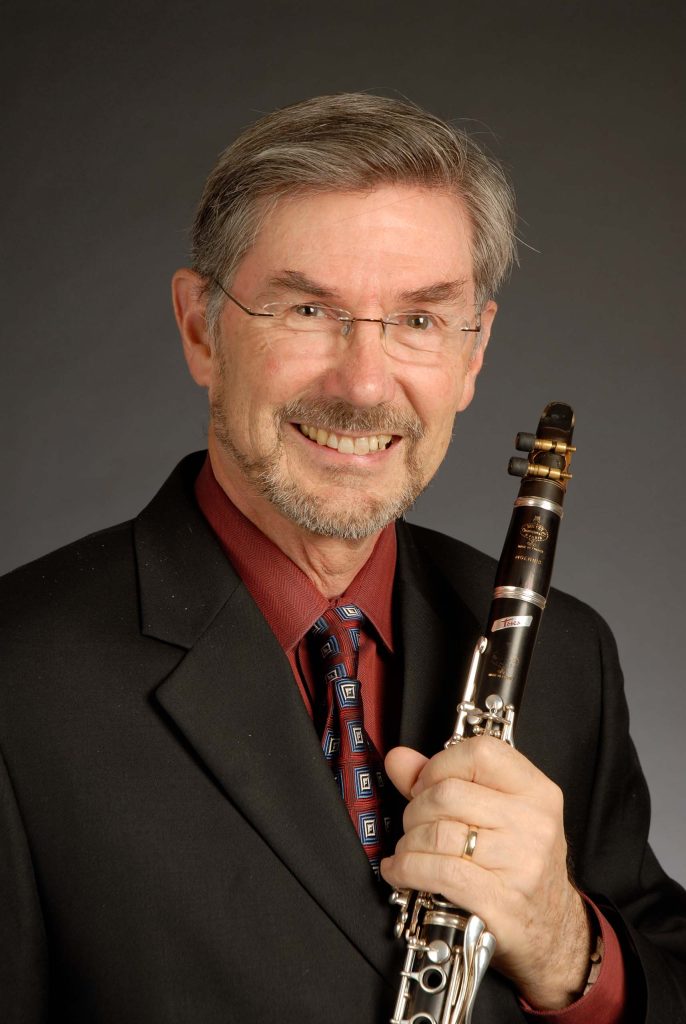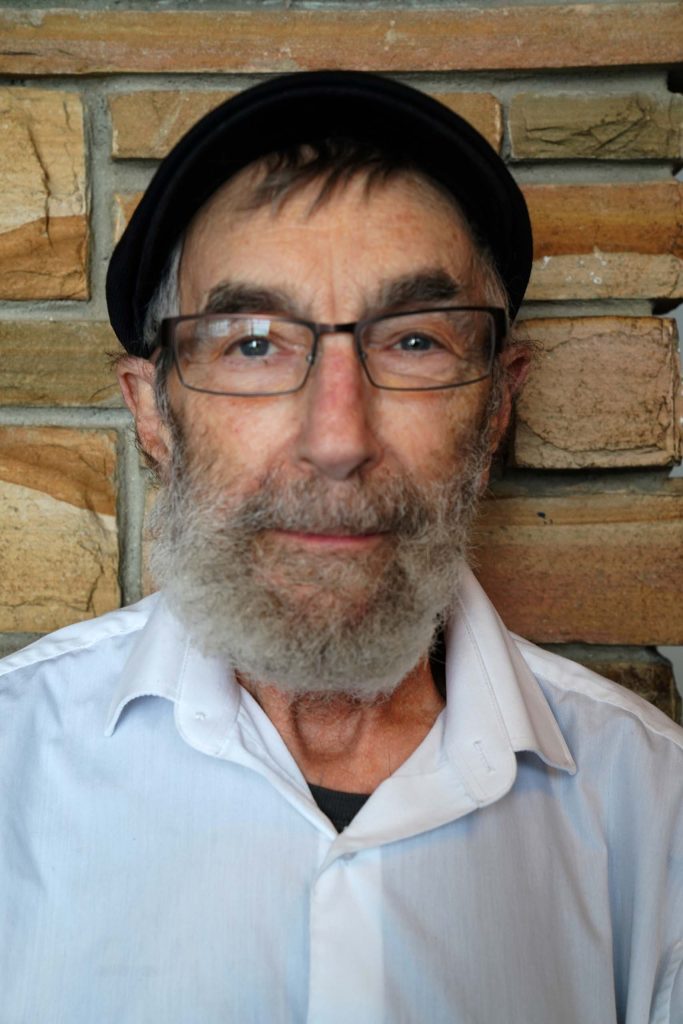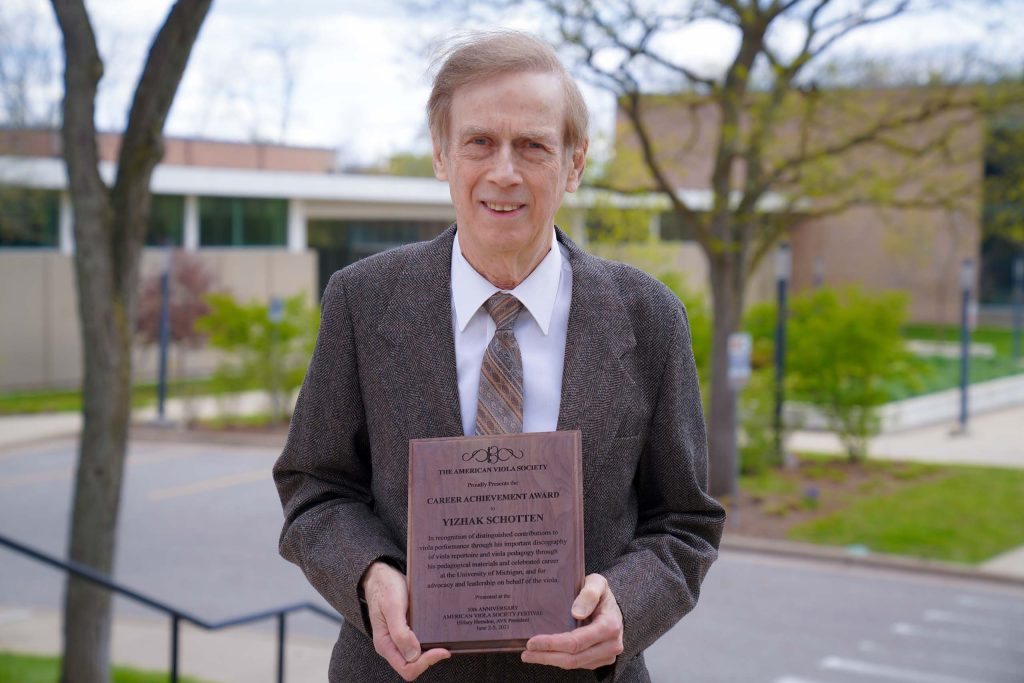Michigan Muse Winter 2025 > In Memoriam
In Memoriam
Richard Crawford (1935–2024)
Professor Emeritus Richard Crawford (BM ’58, music education; MM ’59, DMA ’65, musicology), who spent his entire teaching career (1961–2003) as a professor of musicology at U-M, died on July 23, 2024, in Ann Arbor.
Crawford was one of the world’s most celebrated scholars of American music. He is credited with legitimizing and popularizing its study and with firmly establishing SMTD’s Department of Musicology as a leader in American music studies. Crawford set his future as a devoted American music scholar when he broke from tradition and chose an American subject for his dissertation, the 18th century Connecticut native and sacred music composer Andrew Law. In 1968, Law was also the subject of Crawford’s first book, which was followed by nine others, including his magnum opus, America’s Musical Life: A History (2001, W.W. Norton), described by Kirkus Reviews as “a superb, all-encompassing survey of music in America.” His final book was Summertime: George Gershwin’s Life in Music (2019, W.W. Norton).
A founding member of the Sonneck Society, later renamed the Society for American Music, Crawford was also the founding editor of Music of the United States of America (MUSA), a project of the American Musicological Society, for which Crawford served as president. MUSA, which comprises a series of scholarly editions of music and is “devoted to showcasing the legacy of American music available for performance and study,” continues to thrive at SMTD. In 2000, Crawford was selected for a Distinguished University Professorship, U-M’s most prestigious teaching appointment, and in 1995 he was elected to the American Academy of Arts and Sciences.
Gavin Creel (1976–2024)
Tony Award-winning alumnus Gavin Creel (BFA ’98, musical theatre), a “triple threat” performer who was also a composer, lyricist, and social activist, died at his home in New York on September 30, 2024, following a short battle with a rare and aggressive sarcoma. He was 48.
A native of Ohio, Creel was a standout performer at SMTD and equally regarded for his effervescent personality, warm demeanor, and generosity of spirit. This combination of exceptional talent and character brought him to the pinnacle of success as a performer while earning the deep respect of his colleagues and the adoration of friends and fans.
Creel’s breakout role was as Jimmy Smith in the 2002 Broadway production of Thoroughly Modern Millie opposite Sutton Foster, for which he received his first Tony nomination. In 2009 he was nominated a second time for his role in the Broadway revival of Hair. That same year he co-founded the non-profit Broadway Impact, which galvanized theatre artists and fans to support marriage equality.
In London, Creel played Bert in Mary Poppins in 2006, reprised his role in Hair when it transferred to the West End in 2010, and took on Elder Price, the lead in The Book of Mormon, for which he won the 2014 Olivier Award for Best Actor in a Musical. He previously played the role in the musical’s US tour and would go on to reprise it on Broadway.
In 2016, Creel again charmed Broadway audiences in She Loves Me with Jane Krakowski, and the following year he won the Tony Award for playing Cornelius Hack in the revival of Hello, Dolly!, starring Bette Midler. In his acceptance speech he thanked SMTD for his training, along with his scholarship benefactors, Arthur and Martha Hearron, and urged others to start scholarships to change lives. Creel heeded his own advice when he and fellow Michigan alumna Celia Keenan-Bolger (BFA ’98, musical theatre), founded the Celia Keenan-Bolger and Gavin Creel Activist Artist Endowed Scholarship Fund to encourage students to engage in social justice causes while in school. Creel also regularly returned to Michigan to teach master classes, give voice lessons, and work with students. Along with collaborators Madeline Benson and Chris Peters, he spent several weeks with students in 2023 and 2024 workshopping a brand-new piece that he titled Loud Nite.
Prior to the pandemic, Creel appeared on Broadway and the West End in Waitress, and in 2022 he received rave reviews for his roles in the Encores production of Into the Woods. In November of 2023 he premiered his debut musical, Walk on Through: Confessions of a Museum Novice, which evolved from a 2019 commission from the Metropolitan Museum of Art. It featured 17 original songs written, played, and performed by Creel, and was directed by SMTD Professor Emerita Linda Goodrich.
Erik Fredricksen (1943–2024)
Professor Emeritus of Theatre & Drama Erik Fredricksen, who taught at U-M for 25 years and served as chair of the Department of Theatre & Drama for 15, died on September 14, 2024. With a BA from Fairmont State College (1965), an MA from Miami University (1966), and an MFA from the Actors Studio of Ohio University (1971), Fredricksen was an accomplished actor and a renowned combat choreographer. He worked extensively on Broadway and at celebrated venues in New York and across the country. He was a founding member and past president of the Society of American Fight Directors and a founding member of the Nordic Society of Theatrical Combat. He held residencies in England, Norway, Estonia, Finland, Denmark, Sweden, and the Stratford Festival of Canada.
Fredricksen first taught at Michigan from 1981–85, then joined the faculty of the California Institute of the Arts (1985–90), where he also served as interim head of acting and associate dean. He returned to U-M in 1990 as associate professor and was promoted to professor in 1994. He served as department chair from 1990–2005 and retired in 2011.
During his SMTD tenure, Fredricksen was actively involved in two capital campaigns, served on the school’s executive committee, created the department’s web page and newsletter, led efforts to establish several key named scholarships, and was actively involved in the planning of the Walgreen Drama Center. In 2010, he was awarded the Claribel Baird Halstead Professorship in recognition of his dedication and commitment to performance on stage. Fredricksen is survived by his wife, Janet Maylie, associate professor emerita of theatre & drama.
Charles Hiroshi Garrett (1966–2024)
Charles Hiroshi Garrett, the Glenn McGeoch Collegiate Professor of Music who taught musicology at SMTD for 20 years, died suddenly on July 18, 2024. Garrett spent his entire teaching career at U-M, beginning in 2004, and was honored with a Faculty Recognition Award in 2014 and the John H. D’Arms Faculty Award for Distinguished Graduate Mentoring in the Humanities in 2023.
During his tenure, Garrett served as editor-in-chief of the Grove Dictionary of American Music, 2nd edition (2013), a huge undertaking that took nearly a decade to complete and immediately became the definitive reference guide for the field. The project was especially meaningful to Garrett as the first edition had been co-edited by H. Wiley Hitchcock, a former U-M professor who was one of Garrett’s mentors at Columbia University, where he earned his BA in music (1998). He had previously received a BA in computer science and American history (1988) at Columbia.
Garrett went on to study musicology at the University of California, Los Angeles where he received his MA (2000) and PhD (2004). His research and teaching centered on music and musical cultures of the US in the 20th and 21st centuries, with special interest in popular music, jazz, technology, sound studies, digital culture, nationalism, and race and ethnicity, among other facets of identity. He served as president of the Society for American Music and as a director-at-large on the board of the American Musicological Society.
Garrett received the Irving Lowens Memorial Book Award (Society for American Music) for his book Struggling to Define a Nation: American Music and the Twentieth Century (2008). Other books included Jazz/Not Jazz: The Music and Its Boundaries (2012), co-edited with David Ake and Daniel Goldmark, and Sounding Together: Collaborative Perspectives on U.S. Music in the 21st Century (2021), written with Carol J. Oja. At the time of his death, he was working on a project exploring music and artificial intelligence.
James Earl Jones (1931–2024)
Actor James Earl Jones (BA ’55, theatre & drama; HDLD ’71), a giant of American theatre whose stage, film, and television roles spanned more than 65 years, died on September 9, 2024. Whether performing as Big Daddy in Cat on a Hot Tin Roof on Broadway, giving voice to Darth Vader in the Star Wars films, playing Alex Haley on TV’s Roots, or narrating the video that introduces U-M football games, James Earl Jones was beloved by generations of fans for his booming voice and soaring talent.
Born in Mississippi, Jones was raised in Michigan by his grandparents and suffered from a stutter as a child, leading to years of muteness until a high school teacher helped him find his voice by reciting poetry aloud. Thanks to a scholarship, he enrolled at Michigan as a pre-med major, but he switched to theatre as a junior. He joined the army under the ROTC in 1953, ultimately earning the rank of first lieutenant, and returned to U-M to finish his degree in 1955.
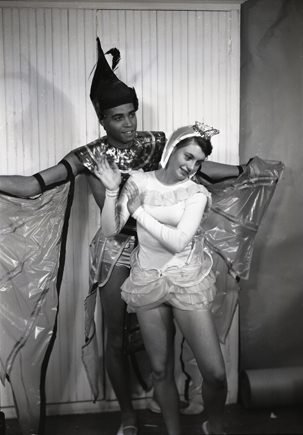
After graduation, Jones pursued a stage career in New York and studied at Lee Strasberg’s Actors Studio. He joined the New York Shakespeare Festival in 1960 and had major roles in multiple productions, including a long and lauded run as Othello. Simultaneously, he worked steadily in television, something he would continue to do throughout his career, and was one of the first Black actors to become a cast member on 1960s soap operas. He made his film debut in Stanley Kubrick’s Dr. Strangelove (1964), but it was his Broadway role as boxer Jack Jefferson in The Great White Hope (1968) that earned him his first Tony Award and cemented his reputation as a brilliant actor. He later reprised the role for the 1970 film, earning him an Oscar nomination. It was one of many roles he played that dealt with racial issues, which, he said, was his way of contributing to the civil rights cause.
Jones won his second Tony Award for Fences in 1987 and received two other nominations. In 2017 he received a special Tony Award for lifetime achievement. He also received two Emmy Awards, a Grammy Award, and an Academy Award for Lifetime Achievement, granting him EGOT status. He was also a National Medal of the Arts winner, a Kennedy Center honoree, an inductee into the Theater Hall of Fame, and the recipient of an honorary doctor of arts degree from Harvard University, among many other honors and awards.
At the time of his death, U-M’s Office of the President issued a statement that said, “James Earl Jones stayed true to the ethos of our university – exceptional in craft, humble in achievement, a pioneer, an artist, and a leader.”
Paul R. Lehman (1931–2024)
Professor Emeritus Paul R. Lehman (MM ’59, wind instruments; PhD ’62, music education), who taught music education at SMTD and served as associate dean and senior associate dean, died on March 24, 2024. An influential leader and policymaker in music education, he was a member of the Music Educators Hall of Fame and an honorary life member of the International Society for Music Education, for which he served on the board. He also served as president of the National Association for Music Education (NAfME) and as a member of the executive board of the College Music Society.
Lehman obtained his BS in education at Ohio University, and after obtaining his advanced degrees at Michigan, he taught in the public schools of Ohio and at the University of Colorado, the University of Kentucky, and the Eastman School of Music. He also served as music specialist with the United States Department of Education in Washington, DC. He returned to U-M in 1975 and retired in 1997.
The author of more than 200 articles and other publications on education reform, education standards, and the assessment of learning in music, Lehman delivered more than 300 lectures on education in nearly every state of the US and more than a dozen other countries. Through his speeches, writings, and other advocacy efforts for more than 50 years, Lehman contributed in important ways to ensuring that the arts remain a part of the education of every child in America.
William P. Malm (1928–2024)
One of the world’s leading scholars of Japanese music, credited with shaping the study of ethnomusicology in the United States, Professor Emeritus William Malm, who taught at U-M for 36 years (1960–96), died at his home in Ann Arbor on September 16, 2024.
Malm earned a BM (1949) and MM (1950) in composition from Northwestern University and a PhD (1959) in musicology from UCLA. His books include Japanese Music and Musical Instruments (1959), the first English language scholarly treatise on the history and instruments of Japan; Nagauta: The Heart of Kabuki Music (1963), which won a monograph prize from the American Academy of Arts and Sciences; and Music Cultures of the Pacific, the Near East, and Asia (1967), a pioneer in world music textbooks.
At SMTD, Malm developed a program in ethnomusicology that included world music surveys, seminars, and performance ensembles, particularly in Japanese kabuki and festival music. He also arranged the university acquisition of an Indonesian gamelan, which he taught. In 1980 he was appointed director of the Stearns Collection of Musical Instruments, a role he held until his retirement, and he is recognized internationally for raising the stature of the collection, which is among the largest and most diverse holdings of musical instruments on a university campus. In 2021, a generous gift from Malm’s wife, Jutta Gerber-Malm, established the William P. Malm Stearns Collection Concert Series and Instrument Preservation Fund. Concerts supported by the fund feature SMTD students and faculty performing on instruments from the collection.
Malm received the Fumio Koizumi Prize in Ethnomusicology for his contributions to the study of Japanese music, and the Order of the Rising Sun from the Japanese government. He served as president, treasurer, and office manager of the Society for Ethnomusicology, lectured around the world, and conducted supported research in Japan, Malaysia, and Australia, and at the East-West Center in Hawaii, and the Villa Serbelloni in Italy.
Fred Ormand (1935–2024)
Professor Emeritus Fred Ormand (BM ’58, clarinet), who taught clarinet at SMTD from 1984 until his retirement in 2007, died on July 1, 2024. Many of Ormand’s former students now hold positions in major symphony orchestras in the United States and Europe, teach at major schools of music, and perform with the United States Army Field Band, the United States Army Band, and the United States Marine Band. Ormand performed with the Chicago Symphony Orchestra, the Cleveland Orchestra, and the Detroit Symphony Orchestra and as a soloist with orchestras in the United States, China, and Europe. He also founded and toured extensively with the Interlochen Arts Quintet and the Dusha Quartet.
After attending U-M for his undergraduate degree, Ormand received his MM at Michigan State University and then attended the Royal College of Music in London as a Fulbright Scholar from 1963–64. He taught at Interlochen Arts Academy and several universities before joining the faculty at Michigan. He was a visiting professor at the Shanghai Conservatory of Music, and in 1995 he gave an acclaimed series of master classes in England, Denmark, and Sweden. He also spent 22 summers at the Grand Teton Music Festival.
Ormand served as president of the International Clarinet Association from 1990–92. He spent more than 10 years preparing editions of the clarinet music of Amilcare Ponchielli, recordings of which are available from Danacord Records. Other recordings by Ormand are available on the Equilibrium Music and Crystal Records labels.
Sanford “Sandy” Robertson (1931–2024)
Sanford Richard “Sandy” Robertson (BBA ’53, MBA ’54, HLLD ’15), a generous donor to SMTD’s Department of Musical Theatre, died on August 3, 2024, at age 93. In 2012, with his late wife Jeanne, Robertson established and endowed the Sanford and Jeanne Robertson Scholarship, which has since provided $750,000 in scholarships for 45 musical theatre students. In 2016, following the retirement of musical theatre chair Brent Wagner, Robertson established the Robertson Emeritus Professorship in Musical Theatre, which allowed Wagner to continue teaching at SMTD and sharing his encyclopedic knowledge of musical theatre with the next generation of performers, casting directors, agents, directors, choreographers, producers, and writers.
Robertson was the co-founder of Robertson, Coleman, Siebel & Weisel (later Montgomery Securities) and a second firm, Robertson Stephens. These firms became known as two of the “Four Horsemen” of technology-focused investment banking. Robertson was responsible for the initial public offerings of over 500 companies, including Spectra-Physics, Sun Microsystems, America Online, Pixar Animation Studios, Genentech, Cypress Semiconductor, Gilead Sciences, and Intuit. Robertson Stephens was eventually sold to Bank of America and later BankBoston.
In 1999, Robertson co-founded Francisco Partners, a private equity firm specializing in technology investment. Since its inception, Francisco Partners has invested in more than 400 technology companies, and it grew to nearly $50 billion in assets under his management.
Robertson also served as a close advisor to Marc Benioff, founder of Salesforce, and served 22 years on the Salesforce board of directors, the last several as lead director, resigning of his own volition at age 92, only to be re-appointed a special advisor to the board at 93 and serving in that position until his death.
A passionate fan of the Michigan Wolverines, Robertson was an often anonymous philanthropist, supporting myriad causes and institutions, particularly in education, health sciences, and the arts. He actively served on numerous boards and advisories, including on the University of Michigan Investment Advisory Committee for over 30 years. He was a major supporter of UCSF Medical Center, a founding board member of the Tech Museum of Innovation in San Jose (now known as the Tech Interactive), and a supporter of the W.M. Keck Observatory in Hawaii.
Robertson was the recipient of many awards and honors, including the San Francisco Chamber of Commerce Excellence in Business Award; Tech Museum of Innovation Tech Inspiration Award; University of Michigan Ross School of Business David D. Alger Alumni Achievement Award; University of California, Berkeley Haas School of Business Lifetime Achievement in Entrepreneurship Award; University of Michigan David B. Hermelin Award for Fundraising Volunteer Leadership; and the University of Michigan Honorary Doctorate, HLLD. In his final days, he was surrounded by his wife Nancy, his daughters, and three generations of family members.
Paul “Pinchas” Schoenfeld (1947–2024)
Composer and pianist Paul “Pinchas” Schoenfeld (also spelled Schoenfield), who retired from SMTD in 2021, died in Jerusalem, Israel, on April 29, 2024. Schoenfeld was renowned for combining jazz and popular music, folk song, klezmer, Jewish chant, and classical music forms into a unique, widely performed style.
A Detroit native, Schoenfeld was a musical prodigy who began taking piano lessons at age six and composing a year later. He appeared with Leonard Bernstein on a New York Philharmonic Young People’s Concert when he was 19, making his Town Hall solo debut that same year. He received his BA from Converse College, his MA from Carnegie Mellon University, and his DMA from the University of Arizona.
Schoenfeld’s distinguished career as a concert pianist included solo recitals and concerto appearances, multiple recordings, and chamber music performances with Musicians from Marlboro and the Gabrielli Trio. His skill at chamber music transferred to composition, with such works as Café Music (1987), commissioned by the Saint Paul Chamber Orchestra and recorded by the Eroica Trio and many other ensembles. Washington, DC’s 21st Century Consort (formerly the 20th Century Consort) performed no fewer than 20 of his works.
Other notable compositions include Camp Songs, a commission by Seattle’s Music of Remembrance, which was nominated for a Pulitzer Prize in 2003; and The Merchant and the Pauper, a two-act opera commissioned by Opera Theatre of Saint Louis. More than 40 albums feature Schoenfeld’s music.
Yizhak Schotten (1943–2024)
The renowned violist Yizhak Schotten, longtime leader of the viola studio at SMTD, died on September 23, 2024. Schotten became a viola professor at Michigan in 1985 and was still teaching at the time of his death. As a performer, he enjoyed a long and celebrated career, serving as principal violist of the Cincinnati Symphony Orchestra and the Houston Symphony, as a member of the Boston Symphony Orchestra, as a member of the acclaimed Trio d’Accordo (with whom he won the Concert Artists Guild International Competition), and as a soloist with many orchestras in the US and abroad.
Born in Israel, Schotten was brought to the US by the renowned violist William Primrose, with whom he studied at Indiana University and the University of Southern California. He also studied with Lillian Fuchs at the Manhattan School of Music. In a feature article in The Strad, he was described as “one of America’s finest viola players…a leading light of the US viola establishment.”
Schotten was a generous teacher who offered master classes around the world. He sat on the American Federation of Musicians Congress of Strings faculty and served on the faculties and performed at the Aspen Music Festival and the festivals of Banff, Meadowmount, Interlochen, Tanglewood, Chamber Music Northwest, Montreal, Chautauqua, Skaneateles, Montecito, Juneau, and Fairbanks.
With his wife, pianist Katherine Collier (SMTD’s Eugene Bossart Collegiate Lecturer), who survives him, Schotten was co-founder and co-music director of the Maui Classical Music Festival in Hawaii and co-director of the Strings Music Festival in Steamboat Springs, Colorado. He and Collier were frequent music collaborators, toured extensively, and made many recordings.
Schotten was the artistic director of the XIV International Viola Congress and has been a featured artist at six other International Congresses. He has recordings on Crystal Records and Composer Recordings, Inc. (CRI), and Pearl Records featured him on its anthology, The Recorded Viola: The History of the Viola on Record, Vol. IV.
1940s
Carolyn S. Austin (BM ’47, MM ’47, voice), died May 20, 2024
Joyce E. Whitney (BM ’48, MM ’49, piano), died December 24, 2023
1950s
M. Dawn Allan (BM ’55, voice), died November 2, 2024
W. Howard Bond (MM ’58, music education), died July 12, 2024
Gloria V. Korhonen (BM ’50, music education), died April 29, 2024
Andrew Lisko (MM ’50, violin), died January 13, 2024
Patricia J. Martin (BM ’57, wind instruments), died April 30, 2024
David C. McCoy (MM ’58, wind instruments), died March 31, 2024
Allen M. Norris (BM ’54, piano; MM ’55, musicology), died May 2, 2024
Mary K. Oyer (MM ’47, music literature; DMA ’58, cello), died January 11, 2024
George H. Peters (BM ’51, music education), died December 25, 2023
Harold M. Portner (MM ’53, music education), died April 29, 2024
Ellen H. Satterthwaite (MM ’59, music literature), died August 12, 2024
Rosemary J. Sprague (BM ’50, music education), died March 21, 2024
Jane T. Tindall (BM ’54, organ), died July 4, 2024
Donald F. Van Every (BM ’52, MM ’53, music education), died February 28, 2024
Don G. Wilcox (BM ’58, music education), died May 27, 2024
1960s
Walter W. Baker (DMA ’63, piano), died April 22, 2024
Suanne Comfort (MM ’68, music education), died October 12, 2024
Richard D. Duffy (MM ’64, music education), died May 10, 2024
Kirk M. Dunklee (MM ’64, music education), died December 27, 2024
Richard W. Hazzard (BM ’63, music education), died July 20, 2024
N. Dale Heinrichs (MM ’63, music education), died May 12, 2024
H. David Herman (MM ’68, church music and organ), died April 8, 2024
James A. Keene (PhD ’69, music education), died February 29, 2024
Sarajane Lecklider (BM ’60, music education), died October 12, 2024
Thomas J. Mruk (MM ’64, music education), died June 13, 2024
Kenneth E. Oyer (BM ’62, music education), died April 11, 2024
Theodore P. Pasma (MM ’60, music education), died February 6, 2024
Dan N. Pressley (BM ’63, MM ’64, voice), died February 24, 2024
Georgia M. Roed (BM ’63, music education), died August 21, 2024
Kay D. Rowe (BM ’68, music education), died December 24, 2023
Carolyn M. Tarzia (BM ’55, MM ’62, viola), died March 10, 2024
Margaret Westlund (MM ’60, music education), died October 30, 2024
Sheila A. Work (BM ’59, MM ’61, violin), died December 31, 2023
David J. Yeomans (DMA ’68, piano), died January 24, 2024
1970s
Jerry C. Barnett (BM ’70, MM ’73, music education), died February 6, 2024
Jane E. Brockman (BM ’71, music theory; MM ’73, composition; DMA ’77, composition), died January 6, 2024
Linda S. Carter (BM ’74, MM ’75, music education), died April 22, 2024
Curtis J. Mathison (EdD ’72, music education), died May 6, 2024
Michael A. Miller (MM ’72, euphonium and wind instruments), died April 25, 2024
Lynn E. Musgrave (MA ’77, theatre), died February 25, 2024
Mary Ellen Nagle (MM ’64, piano; PhD ’72, musicology), died June 18, 2024
Gary D. Schaaf (MFA ’76, dance), died January 17, 2024
Walter J. Schwede (BM ’71, violin), died June 19, 2024
A. Wayne Tipps (PhD ’74, music education), died April 4, 2024
Thomas E. Urich (BM ’78, music education and percussion), died July 31, 2024
1980s
Danny R. Brooks (MM ’80, organ), died April 24, 2024
Jeffrey T. Campbell (BM ’80, clarinet and music education), died August 29, 2024
Candace L. DeLattre (SM ’89, voice), died June 9, 2024
Raymond J. Shuster (MA ’76, musicology; DMA ’84, voice), died July 26, 2024
Lily S. Siller (BA ’80, music), died July 18, 2024
Thomas F. Strode (MM ’75, DMA ’81, organ), died June 25, 2024
Jorge E. Wood (BM ’86, saxophone), died January 1, 2024
1990s
Shari D. Linnick (BMA ’95, voice), died January 5, 2024
Christine A. Miller (BMA ’98, voice), died March 8, 2024
Peter Mills (BFA ’99, performing arts technology), died December 18, 2023
Thomas C. Smith (MM ’95, percussion), died September 9, 2024
2000s
Shauna L. Holland (BA ’00, music), died August 17, 2024


